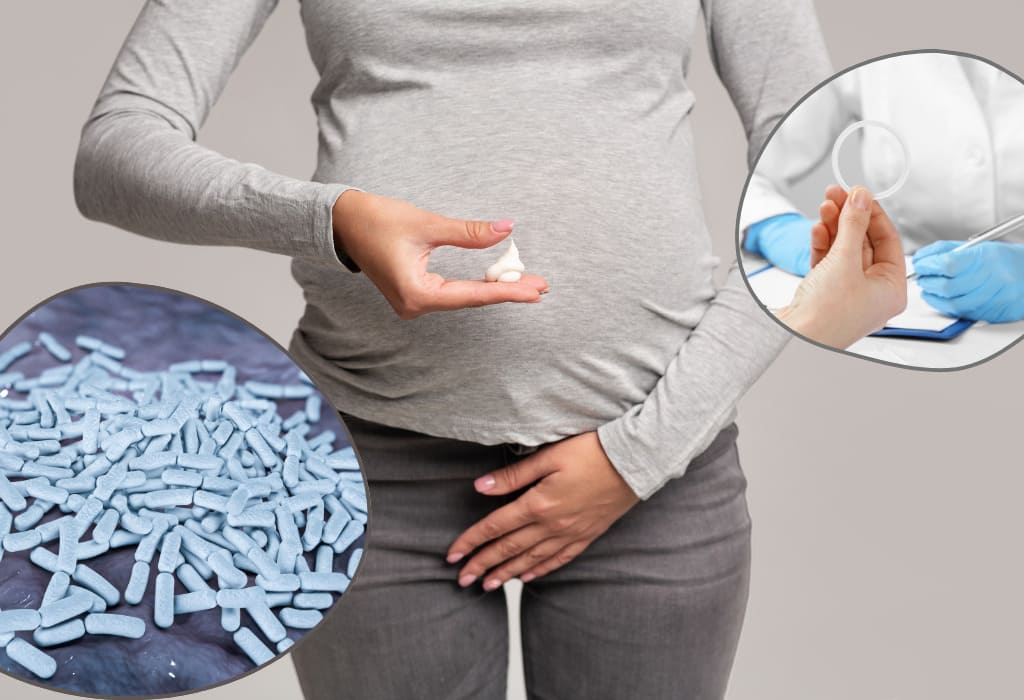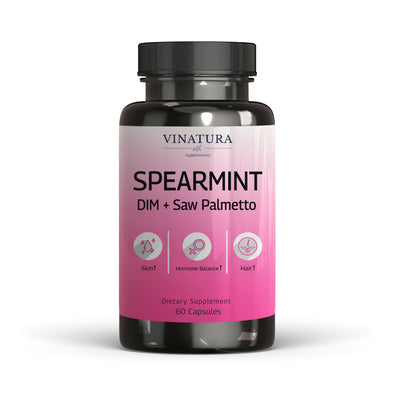
How Does Lactobacillus Gasseri Benefit for Vaginal Health?
Maintaining the balance of vaginal microbiota is always a concern for women, as it dramatically affects reproductive functions and daily activities.
Among the beneficial bacteria, Lactobacillus gasseri is considered the "hero" in protecting vaginal health and may prevent the development of pathogens.
This article will discuss the benefits of Lactobacillus gasseri for vaginal health and address the question: How Does Lactobacillus Gasseri Benefit For Vaginal Health?
Before exploring further, please read the disclaimer located at the end of this webpage.
Key Takeaways
- Lactobacillus gasseri helps balance the pH and acidity in the vaginal environment.
- L. gasseri produces natural antibiotics, Bacteriocin and Lectin, which inhibit the growth of pathogens and may prevent harmful bacteria from adhering to the vaginal wall.
- L. gasseri releases extracellular vesicles (EVs) that help balance the internal environment and enhance the adhesion of other strains to the vaginal mucous membrane.
- L. gasseri stimulates the formation of biofilms of the same species while inhibiting the biofilm formation of pathogenic bacteria.
- L. gasseri offers other health benefits such as reducing stress, regulating immune function, extending lifespan, reducing fat accumulation, and alleviating sleep disorders.
What are the Benefits of Lactobacillus Gasseri for Vaginal Health?
Lactobacillus gasseri benefits vaginal health mainly by maintaining the stability of the vaginal microbiome and inhibiting harmful bacteria:
Maintain the Vaginal Microbiome Stability

The stability of the microbiome plays a crucial role in maintaining the typical physiological environment in the host body. It is indispensable for successful reproductive function [1], especially in females.
For optimal activity, the pH and acidity of the vaginal environment need to be maintained at a stable level.
When the pH and acidity levels increase or decrease compared to the healthy level, the beneficial bacteria will face difficulties in growth and may prevent harmful bacteria.
Lactobacillus gasseri acts against pathogens related to the vagina, such as Salmonella enterica serovar Typhimurium SL1344 and Gardnerella vagis DSM 4944, by secreting lactic acid and hydrogen peroxide, two metabolic substances that work together to kill bacteria at high concentrations [2].
Furthermore, among the Lactobacillus species residing in the vagina, L. gassers's production of lactic acid ranks second, just after L. Cristatus [3].
Hence they function well in maintaining ideal pH levels in the vaginal environment.
Other studies also indicate that the vaginal microbiome is a dynamic microenvironment affected by pregnancy, menstrual cycles, age, contraception, and sexual activity [1], so changes in the vaginal environment can occur in bodies without inflammation or excessive infection.
Inhibit Harmful Microbes
The body's bacteria are always in a state of competition for nutrients and living space.
Lactobacillus is no exception, secreting antibiotic molecules that inhibit and kill other bacteria species, maintaining a balanced, healthy ecosystem within the body [4].
Lactobacillus gasseri produces two molecules that act as natural antibiotics in the body, Bacteriocin and Lectin.
Bacteriocin, through fermentation, inhibits the growth of genital pathogens like G. vagus, S. agalactiae, and P. aeruginosa [5].
Lectin ultimately kills harmful bacteria through its bactericidal activity [6].
Lactobacillus gasseri also produces substances capable of forming natural surfactants (otherwise known as biosurfactants).
These substances can isolate adjacent molecules from one another, potentially prevent disease-causing bacteria from adhering to the vaginal wall, notably the culprit behind yeast infections, Candida [7].
How Does Lactobacillus Gasseri Benefit For Vaginal Health?
In addition to releasing beneficial bacteria and compounds for vaginal health, L. gasseri also releases extracellular molecules that may help to prevent harmful agents such as :
Extracellular Vesicles (EVs)

EV - Extracellular Vesicles represent legitimate postbiotics with the potential to maintain the balance of the vaginal microbiome and enhance reproductive health in women.
The EV "bubbles" released from Lactobacillus may help to prevent pathogens from adhering to the vaginal mucosa (such as Escherichia coli and Enterococcus faecalis), balancing the microbiome by supporting the invasion of beneficial bacteria and hindering the growth of harmful factors [8].
Research on the potential of extracellular vesicles also shows that EVs enhance the adhesion of different Lactobacillus strains to the vaginal mucosa, such as L. Crisatus BC5 and L. gasseri BC12, helping to stabilize and balance the vaginal microbiome more effectively [8].
Extracellular Polymeric Substance (EPS)
EPS are high-molecular-weight natural polymers produced by various microorganisms during their metabolic processes.
They possess a biofilm's full functionality and structure, providing structural support and shielding the microbial community from harsh environments [9].
EPS produced by Lactobacillus promotes biofilm formation while inhibiting pathogens' growth.
In particular, EPS stimulates biofilm formation of the same or different Lactobacillus strains.
Conversely, EPS also inhibits the formation of biofilms by pathogenic bacteria such as E.coli, E. spp, and S. agalactiae [10].
These activities suggest that EPS is utilized as a postbiotic in medicine to reduce infections, and alleviate external stress in the vaginal area.
Other Benefits of Lactobacillus Gasseri

In addition to the benefits above for vaginal health, Lactobacillus gasseri offers numerous other health effects, such as:
- Reducing stress, and sleep disorders [11].
- It regulates the immune system, minimizing Helicobacter pylori infections [12].
- Supports irritable bowel syndrome (IBS) symptoms, promoting intestinal comfort [13].
- It plays a role in regulating stress-resistant genes and extending lifespan [14].
- Enhances the immune response in the elderly, increasing natural protective mechanisms and combating infectious diseases [15].
- Reduces visceral fat, suitable for overweight or obese individuals [16].
- Research indicates that Lactobacillus Reuteri may protect against premature skin aging caused by UV radiation from the sun and other sources.
Conclusion
Although research is ongoing, the remarkable benefits of Lactobacillus gasseri for vaginal health cannot be denied. It helps stabilize and balance the microbiota and brings many other health values. Hopefully, this article has helped you address the question: How Does Lactobacillus Gasseri Benefit For Vaginal Health?
References
- [1] Saraf, Viqar Sayeed, et al. "Vaginal Microbiome: Normalcy vs Dysbiosis." Archives of Microbiology, vol. 203, no. 7, 13 June 2021, pp. 3793–3802, https://doi.org/10.1007/s00203-021-02414-3.
- [2] Atassi, Fabrice, and Alain L. Servin. "Individual and Co-Operative Roles of Lactic Acid and Hydrogen Peroxide in the Killing Activity of Enteric Strain Lactobacillus Johnsonii NCC933 and Vaginal Strain Lactobacillus Gasseri KS120.1 against Enteric, Uropathogenic and Vaginosis-Associated Pathog." FEMS Microbiology Letters, vol. 304, no. 1, 4 Feb. 2010, pp. 29–38, onlinelibrary.wiley.com/doi/10.1111/j.1574-6968.2009.01887.x/full, https://doi.org/10.1111/j.1574-6968.2009.01887.x. Accessed 5 Dec. 2019.
- [3] Witkin, Steven S., et al. "Influence of Vaginal Bacteria and D- and L-Lactic Acid Isomers on Vaginal Extracellular Matrix Metalloproteinase Inducer: Implications for Protection against Upper Genital Tract Infections." MBio, vol. 4, no. 4, 6 Aug. 2013, mbio.asm.org/content/4/4/e00460-13, https://doi.org/10.1128/mbio.00460-13. Accessed 16 Sept. 2019.
- [4] Szczerbiec, Dominika, et al. “Organic Acids Secreted by Lactobacillus Spp. Isolated from Urine and Their Antimicrobial Activity against Uropathogenic Proteus Mirabilis." Molecules, vol. 27, no. 17, 29 Aug. 2022, p. 5557, https://doi.org/10.3390/molecules27175557. Accessed 26 Sept. 2022.
- [5] Gaspar, C., et al. "Bacteriocin Production of the Probiotic Lactobacillus Acidophilus KS400." AMB Express, vol. 8, no. 1, 27 Sept. 2018, https://doi.org/10.1186/s13568-018-0679-z. Accessed 11 Oct. 2021.
- [6] Fabrice Atassi, and Diane L. Pho Viet Ahn. "Diverse Expression of Antimicrobial Activities against Bacterial Vaginosis and Urinary Tract Infection Pathogens by Cervicovaginal Microbiota Strains of Lactobacillus Gasseri and Lactobacillus Crispatus." Frontiersin, 20 Dec. 2019, www.frontiersin.org/journals/microbiology/articles/10.3389/fmicb.2019.02900/full. Accessed 27 Apr. 2024.
- [7] De Gregorio, Priscilla Romina, et al. "Biosurfactant from Vaginal Lactobacillus Crispatus BC1 as a Promising Agent to Interfere with Candida Adhesion." Microbial Cell Factories, vol. 19, no. 1, 18 June 2020, https://doi.org/10.1186/s12934-020-01390-5. Accessed 18 Jan. 2022.
- [8] Croatti, Vanessa, et al. Lactobacilli Extracellular Vesicles: Potential Postbiotics to Support the Vaginal Microbiota Homeostasis. Vol. 21, no. 1, 15 Nov. 2022, https://doi.org/10.1186/s12934-022-01963-6. Accessed 16 July 2023.
- [9] Fulaz, Stephanie, et al. "Nanoparticle–Biofilm Interactions: The Role of the EPS Matrix." Trends in Microbiology, vol. 27, no. 11, Nov. 2019, pp. 915–926, https://doi.org/10.1016/j.tim.2019.07.004.
- [10] Giordani, Barbara, et al. "Exopolysaccharides from Vaginal Lactobacilli Modulate Microbial Biofilms." Microbial Cell Factories, vol. 22, no. 1, 8 Mar. 2023, https://doi.org/10.1186/s12934-023-02053-x. Accessed 26 Mar. 2023.
- [11] Nishida, Kensei, et al. "Health Benefits of Lactobacillus Gasseri CP2305 Tablets in Young Adults Exposed to Chronic Stress: A Randomized, Double-Blind, Placebo-Controlled Study." Nutrients, vol. 11, no. 8, 1 Aug. 2019, p. 1859, www.mdpi.com/2072-6643/11/8/1859, https://doi.org/10.3390/nu11081859.
- [12] Selle, Kurt, and Todd R. Klaenhammer. "Genomic and Phenotypic Evidence for Probiotic Influences of Lactobacillus Gasseri on Human Health." FEMS Microbiology Reviews, vol. 37, no. 6, 1 Nov. 2013, pp. 915–935, academic.oup.com/femsre/article/37/6/915/554287, https://doi.org/10.1111/1574-6976.12021.
- [13] Kim, Ji Yeon, et al. "Effect of Lactobacillus Gasseri BNR17 on Irritable Bowel Syndrome: A Randomized, Double-Blind, Placebo-Controlled, Dose-Finding Trial." Food Science and Biotechnology, vol. 27, no. 3, 12 Dec. 2017, pp. 853–857, https://doi.org/10.1007/s10068-017-0296-7.
- [14] Nakagawa, Hisako, et al. "Effects and Mechanisms of Prolongevity Induced ByLactobacillus GasseriSBT2055 InCaenorhabditis Elegans." Aging Cell, vol. 15, no. 2, 29 Dec. 2015, pp. 227–236, www.ncbi.nlm.nih.gov/pmc/articles/PMC4783334/, https://doi.org/10.1111/acel.12431. Accessed 5 Nov. 2019.
- [15] Miyazawa, K., et al. "Heat-Killed Lactobacillus Gasseri Can Enhance Immunity in the Elderly in a Double-Blind, Placebo-Controlled Clinical Study." Beneficial Microbes, vol. 6, no. 4, Aug. 2015, pp. 441–449, https://doi.org/10.3920/bm2014.0108. Accessed 1 Feb. 2023.
- [16] Jung, Seung-Pil, et al. "Effect OfLactobacillus GasseriBNR17 on Overweight and Obese Adults: A Randomized, Double-Blind Clinical Trial." Korean Journal of Family Medicine, vol. 34, no. 2, 2013, p. 80, https://doi.org/10.4082/kjfm.2013.34.2.80.
Author

Product Disclaimer
Including an ingredient or study does not evaluate, endorse, or recommend any Vinatura product or any third-party product. Some ingredients discussed may not be used in any Vinatura product.
The content of the articles has not been evaluated by the Food and Drug Administration (FDA) and is not intended to promote or endorse any specific product. Any products sold on this website are not intended to diagnose, treat, cure, or prevent any disease.
Opinions and Endorsements
Any claims, statements, or opinions expressed in the articles are those of the author(s) and do not necessarily reflect the views or opinions of the manufacturers of the dietary supplement products. The products sold on this website are separate from the content of the articles and are not directly endorsed or associated with the information presented here.
Liability Disclaimer
The author(s) of the articles, website, and manufacturers of the dietary supplement products do not assume any liability for any potential consequences arising from the use of the information provided in the articles. Ingredient effects, dosages, and safety vary by individual, formulation, and context; some ingredients interact with medications or may be unsuitable during pregnancy or lactation. It is recommended that individuals consult with a qualified healthcare professional before making any dietary or lifestyle changes, including the use of dietary supplements.
Product Usage
Please refer to the product labels and packaging for specific usage instructions and guidelines for the dietary supplement products sold on this website.
Customer Support
For any concerns or questions regarding the dietary supplement products, please contact our customer support team, who will be more than happy to assist you.





Leave a Comment
Be the first to comment.
What do you think?